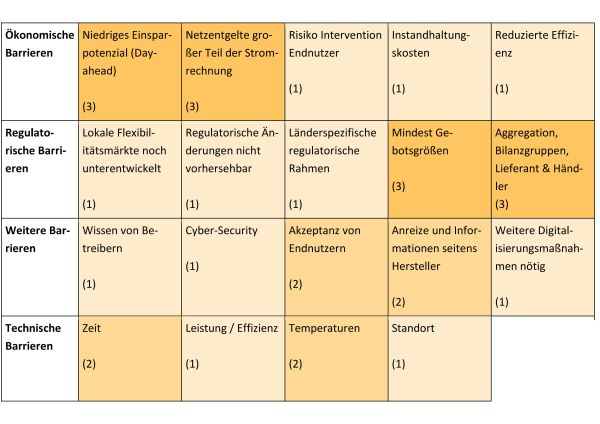IEA HPT Annex 57: Showing flexibility benefits through heat pump implementation in multi-vector energy systems and thermal networks
Short Description
Motivation
Analyses of the IEA HPT Annex 47 show that up to 50% of heat demand in Europe can be covered by district heating. Up to 25% can be covered by heat pumps (HP). Annex 57 deals with advancing the implementation of heat pumps in district heating and cooling systems. The Annex' focus lies on increasing flexibility through HP in energy systems that are coupled with different technologies such as PV, wind power and biomass. In these systems, end users act as prosumers (multi-vector energy systems). Furthermore, by using HPs, the future thermal grids can be operated at lower temperatures in order to increase the possibilities for waste heat utilisation. In this way, the grid can be operated more efficiently overall, as heat losses can be reduced. Other positive effects include reduced investment risks, increased security of supply, reduced CO2 emissions and thus a contribution to achieving the climate and energy goals.
Goals
The project seeks intensive collaboration and exchange with the international experts and partners of the IEA Heat Pump Programme regarding the utilisation of flexibility options of HP. The specific goals of the national project are:
- Analysis of the energy situation and the role of heat pumps in Austria and analysis of heat sources (WP 2)
- Survey and categorization of specific case studies in Austria (WP 3)
- Development of framework conditions for providing flexibility and of promising concepts (WP 4)
- Identification of relevant markets and evaluation of promising areas of application (WP 5)
- Identification of barriers and possible solutions as well as Development of business models (WP 6)
- Creation of a communication strategy and dissemination activities (lectures, publications, courses, workshops, social media, involvement in teaching) (WP 7)
Expected results, target group
Using international case studies, factors influencing the technical and economic potential for flexibility options as well as the development of business models and a catalog of measures to overcome barriers were systematically identified, characterized and evaluated. As a result, economically and ecologically sensible pilot projects were identified and concepts for flexibility applications were outlined and further developed.
The results reinforce and substantiate the industry's previous assessment that the use of flexibility plays an important role, but that there are a number of barriers that need to be overcome. The present results can therefore be used as a central basis for further work on reducing barriers or creating innovative business models. In addition, the results in Annex 57 have a strong international perspective, which means that a number of working demo projects can serve as reference points.
Project Images
Terms of use: The pictures listed underneath the header “Project Pictures” originate from the projects in the frame of the programmes City of Tomorrow, Building of Tomorrow and the IEA Research Cooperation. They may be used credited for non-commercial purposes under the Creative Commons License Attribution-NonCommercial (CC BY-NC).
Participants
Denmark (Operating Agent), Germany, the Netherlands, Austria, Sweden
Contact Address
AIT Austrian Institute of Technology GmbH
Philipp Ortmann
Giefinggasse 6, 1210 Vienna
E-Mail: philipp.ortmann@ait.ac.at
Technische Universität Wien
Energy Economics Group (EEG)
Lukas Kranzl
Gusshausstrasse 25-29/370-3, 1040 Wien
E-Mail: kranzl@eeg.tuwien.ac.at
Technische Universität Graz
Institut für Wärmetechnik
René Rieberer
Inffeldgasse 25/B, 8010 Graz
E-Mail: rene.rieberer@tugraz.at

